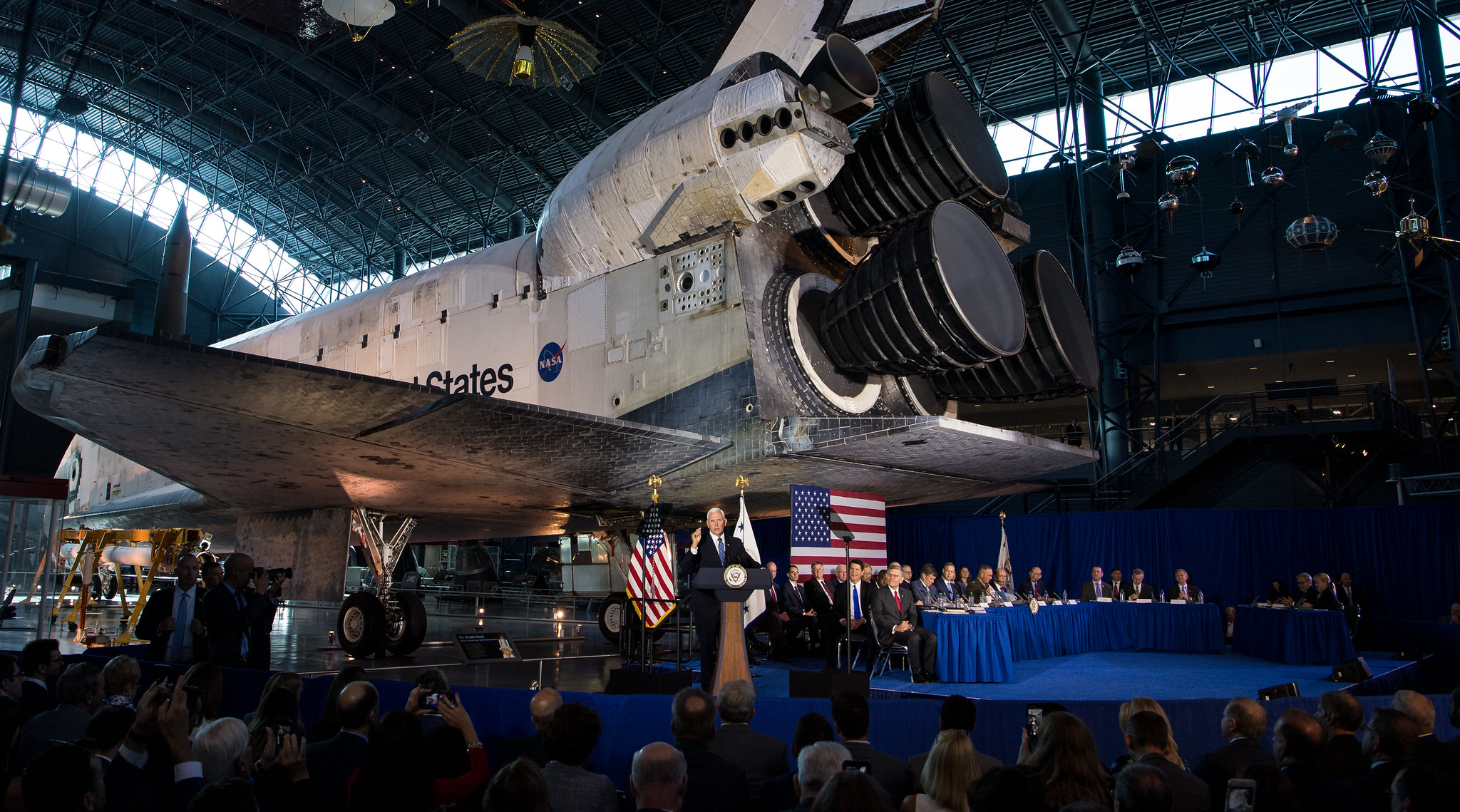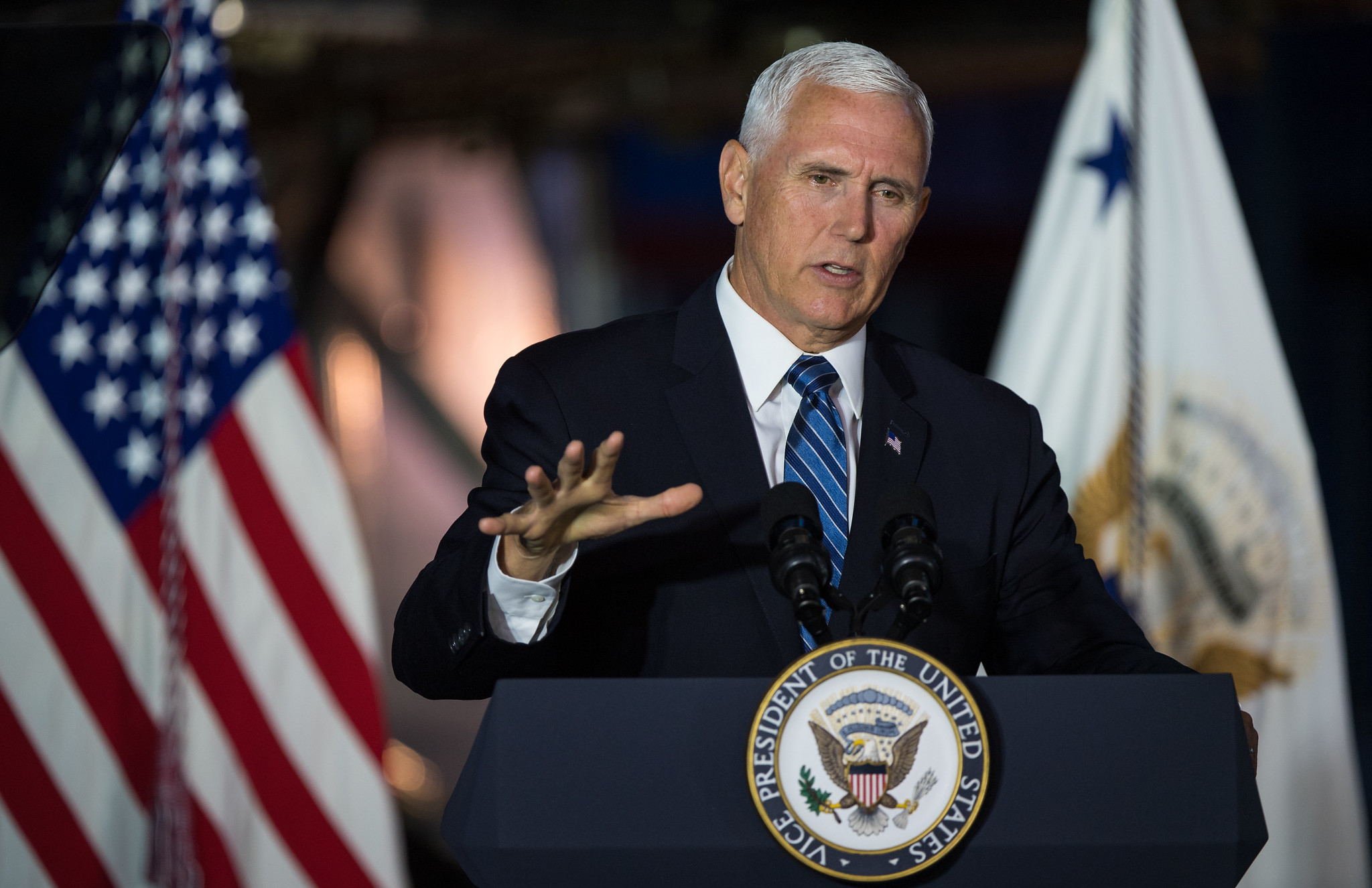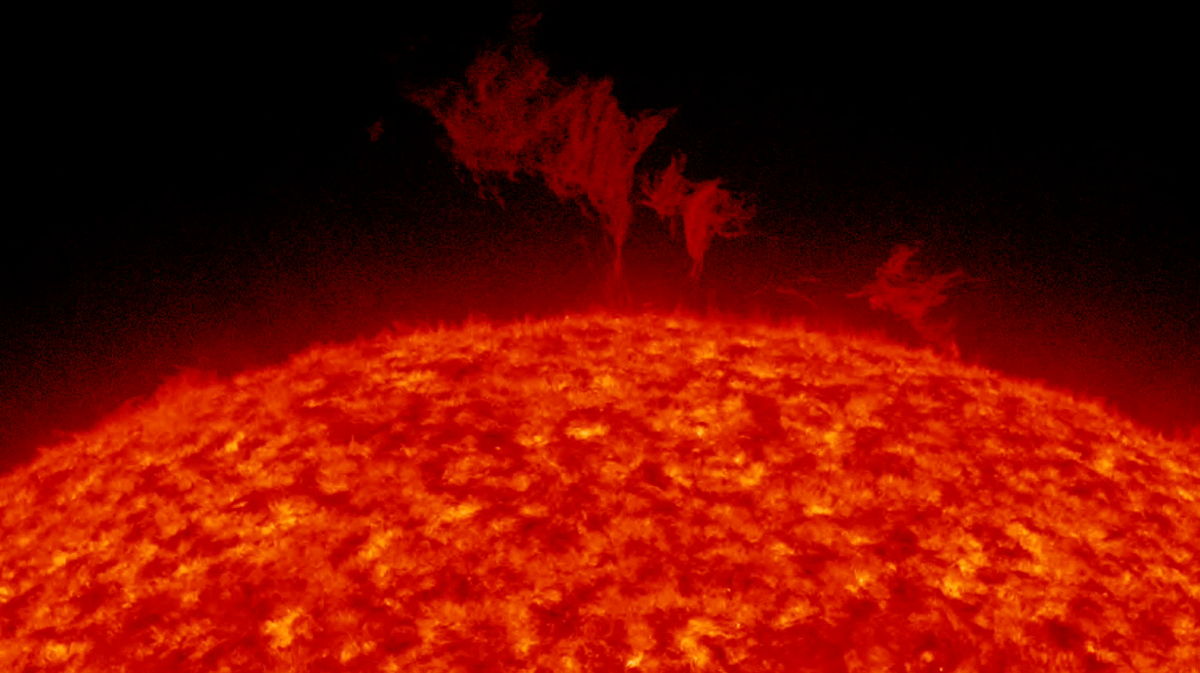New US Space Command Will Launch Next Week, VP Pence Says
The U.S. Space Command will be born Aug. 29.
The new United States Space Command will officially be up and running by the end of the month, Vice President Mike Pence said today (Aug. 20) at a meeting of the National Space Council.
The U.S. Space Command will be the military's unified combatant command in charge of the country's defense operations in space. It will become the Defense Department's 11th unified combatant command, alongside the U.S. Strategic Command, the U.S. Special Operations Command and other commands that serve specific functions or geographic regions.
"Next week we will formally stand up the new unified combatant command that will be known as the United States Space Command," Pence said during the sixth meeting of the newly established National Space Council as he stood beneath the space shuttle Discovery at the National Air and Space Museum's Steven F. Udvar-Hazy Center in Chantilly, Va.
Related: Plans for Space Force Laid Out at National Space Council Meeting

Chairman of the Joint Chiefs of Staff Gen. Joseph Dunford, who was also present at the meeting, said that a formal ceremony to "stand up" the U.S. Space Command will take place on Aug. 29. Effective immediately after that, the Space Command will consist of 87 people under the direction of Gen. John Raymond, who is currently the commander of Air Force Space Command.
President Donald Trump has also been touting the idea of a "Space Force," a potential sixth branch of the U.S. military, for over a year. He made it official in February with the signing of Space Policy Directive-4, which ordered the Pentagon to establish a Space Force to go along with the Army, Navy, Air Force, Marines and Coast Guard.
While the Space Force and the Space Command will work together, they are not the same entity. As Deputy Defense Secretary Patrick Shanahan explained via Twitter, "The Space Force will serve as a force provider for personnel, assets, and capabilities supporting space operations, while Space Command will serve as the operational command that will employ space capabilities and lead space operations." Once the two organizations are both up and running, "the differences between Space Force and U.S. Space Command will largely parallel those of the other five military services and four functional combatant commands," he added.
Get the Space.com Newsletter
Breaking space news, the latest updates on rocket launches, skywatching events and more!

According to Pence, the Space Force military branch is expected to be up and running by 2020 — that is, if Congress agrees to establish and fund it.
"Space is a war-fighting domain," Pence said. "The United States Space Force will ensure that our nation is prepared to defend our people, to defend our interests and defend our values in the vast expanse of space and here on the Earth with the technologies that will support our common defense."
- National Space Council Seeks Urgency in NASA Exploration Plans
- Space Force Would Cost Billions More Than DoD Estimated
- Trump's 2020 Budget Funds Space Force, Increases Defense Spending by 5%
Email Hanneke Weitering at hweitering@space.com or follow her @hannekescience. Follow us on Twitter @Spacedotcom and on Facebook.
Join our Space Forums to keep talking space on the latest missions, night sky and more! And if you have a news tip, correction or comment, let us know at: community@space.com.

Hanneke Weitering is a multimedia journalist in the Pacific Northwest reporting on the future of aviation at FutureFlight.aero and Aviation International News and was previously the Editor for Spaceflight and Astronomy news here at Space.com. As an editor with over 10 years of experience in science journalism she has previously written for Scholastic Classroom Magazines, MedPage Today and The Joint Institute for Computational Sciences at Oak Ridge National Laboratory. After studying physics at the University of Tennessee in her hometown of Knoxville, she earned her graduate degree in Science, Health and Environmental Reporting (SHERP) from New York University. Hanneke joined the Space.com team in 2016 as a staff writer and producer, covering topics including spaceflight and astronomy. She currently lives in Seattle, home of the Space Needle, with her cat and two snakes. In her spare time, Hanneke enjoys exploring the Rocky Mountains, basking in nature and looking for dark skies to gaze at the cosmos.









